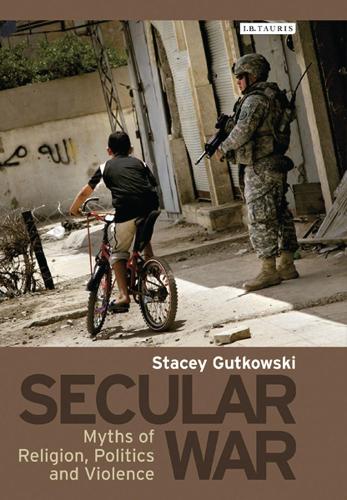
Secular War: Myths of Religion, Politics and Violence
Publishing Details
Secular War: Myths of Religion, Politics and Violence
By (Author) Stacey Gutkowski
Bloomsbury Publishing PLC
I.B. Tauris
30th November 2013
United Kingdom
Classifications
Tertiary Education
Non Fiction
Social groups: religious groups and communities
306.6
Physical Properties
376
Width 138mm, Height 216mm
596g
Description
How have long-standing and unconscious secular assumptions about religion shaped the post-9/11 climate and its wars Stacey Gutkowski explores this little-examined, yet crucial, element of British perceptions of and policy towards Jihadism over the last decade, to draw critical conclusions about the relationship between war and the secular. She points to a surprisingly coherent body of secular beliefs that have fuelled policies in Iraq, Afghanistan and counter-terrorism, and that have had mixed results - responsible for both positive strategies and tragic errors. The theory Gutkowski develops on the impact of this secular approach to warfare holds a broader global significance, and cannot be viewed as just a British phenomenon. This book addresses ongoing and critical debates, such as the 'overreach' of Western liberal interventionism in the Middle East, and speaks to policy-makers, security analysts and students of IR, Foreign Policy and Security Studies.
Reviews
'For those who seek to understand the tragic entanglements we have found ourselves in, both in the Gulf and Central Asia, this is a timely and important work that adds a fresh perspective on the ideas that underpin our ambitious programme for reform and political transformation. For those who want a stronger grasp of the way often-unspoken assumptions about faith drive state behaviour, this is a vital intervention in the debate. And for students of contemporary war and armed conflict, this is an unusually original and provocative study of the armed liberalism that has shaped and disfigured statecraft in our time.' Dr Patrick Porter, Reader in Strategic Studies, University of Reading 'For those who seek to understand the tragic entanglements we have found ourselves in, both in the Gulf and Central Asia, this is a timely and important work that adds a fresh perspective on the ideas that underpin our ambitious programme for reform and political transformation. For those who want a stronger grasp of the way often-unspoken assumptions about faith drive state behaviour, this is a vital intervention in the debate. And for students of contemporary war and armed conflict, this is an unusually original and provocative study of the armed liberalism that has shaped and disfigured statecraft in our time.' Dr Patrick Porter, Reader in Strategic Studies, University of Reading
Author Bio
Stacey Gutkowski is Lecturer in Conflict/Post-Conflict Studies in the Middle East and Mediterranean Studies Programme at King's College London. She holds a PhD in Politics and International Studies from Cambridge University.
